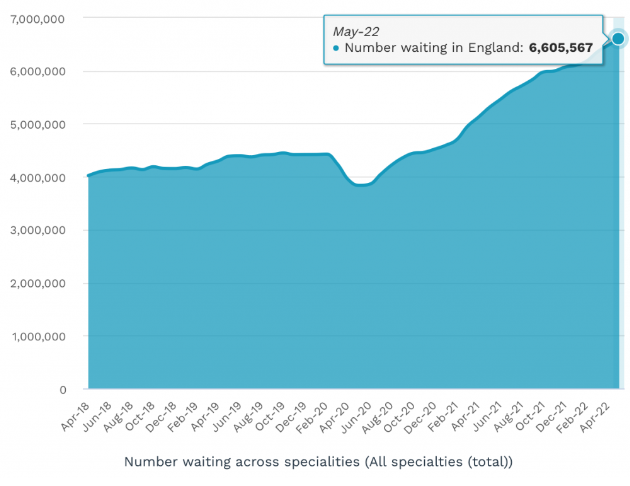IDCA News
All IDCA News
10 Aug 2022
NHS Turns to Artificial Intelligence to Reduce Patient Wait Times
The National Health Service (NHS) in Liverpool has teamed up with Tata Consultancy Services (TCS) to develop an AI chatbot to help combat patient wait times. In the wake of the post-Covid negotiations, patients' waiting times have skyrocketed. The move was motivated after Britain's National Health Service (NHS) tested an artificial intelligence chatbot to provide non-urgent advice and information about treatment options.
The chatbot, named Connie (a combination of the word conversation and intelligence), has been made available on Facebook Messenger. The algorithm is designed to answer questions about doctor's appointments and medical procedures, such as what to expect during a procedure and how long patients can wait before being seen by their doctor.
According to Dr. Andrew Bernstein, who heads up the project at NHS Digital:
“The next step is trying out this conversational agent in real-life scenarios, such as triaging incoming emails from members of the public who want to book an appointment with their GP. If successful, this would go a long way toward reducing what has been described as extremely high demand levels for GPs."
An interview with Shalini Mathur, the leader of the Business Unit Head of Public Service who heads up public services for the United Kingdom, Europe, and ANZ at TCS, reads:
"We are pleased to partner with The Walton Centre to transform patient care in the UK using next-gen technologies.
These technologies and solutions will help reduce waiting times for patients while improving the productivity of specialist consultants. In addition, this creates a blueprint for similar digital innovation in other clinical settings."
As the first product of this partnership, an AI chatbot will transform how patients suffering from headaches are diagnosed and treated.
A headache can be nothing more than a nuisance to something more serious or life-altering. Of course, anyone concerned that their headache could be serious should get it examined, but deciding which patients should be prioritized is an important but difficult career choice.
Those with headaches account for most of the outpatient referrals to neurologists at the Walton Centre. Using a chatbot will enable data about the patient's condition to be collected to compile a detailed report for the clinician to review before an initial appointment.
Depending on the clinician's assessment, the patient may be offered guidance in alleviating symptoms or put on a fast track for an examination.
The Walton Centre's Divisional Clinical Director for Neurology and Consultant Neurologist specializing in headaches, Dr. Anita Krishnan, said:
"Technology is a huge part of medicine, and it's exciting to work with TCS to create a new artificial intelligence-based solution that will help our patients.
The chatbot system also has the potential to be extended into other areas of medicine, which could benefit even more patients.
We work closely with TCS and our other specialist partners to ensure the new solution is effective and safe and improves efficiency and patient outcomes."
Chatbots aren't going to solve all of the NHS' problems, but they are sure to improve the quality of treatment for patients and reduce the workload on staff.
Follow us on social media: